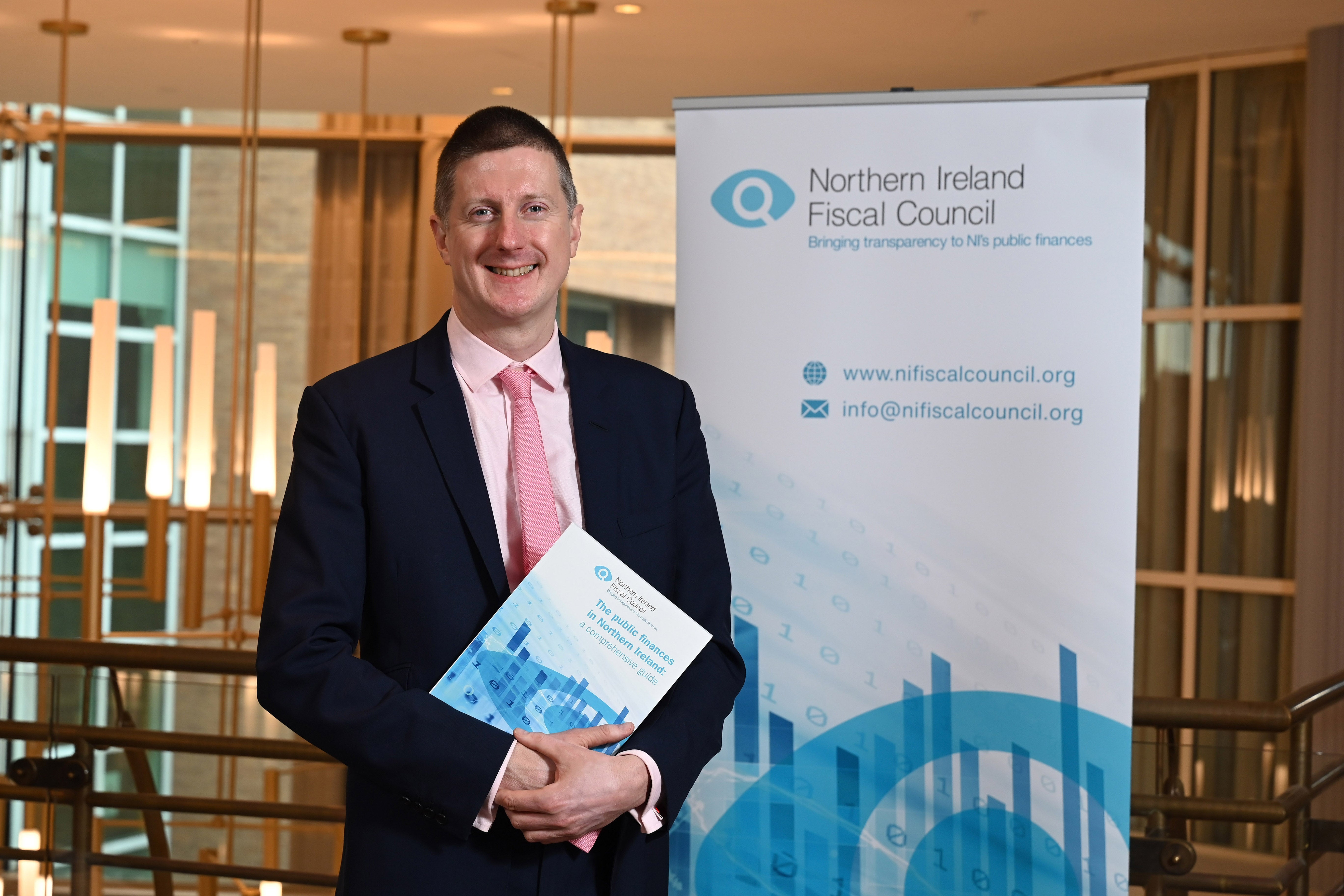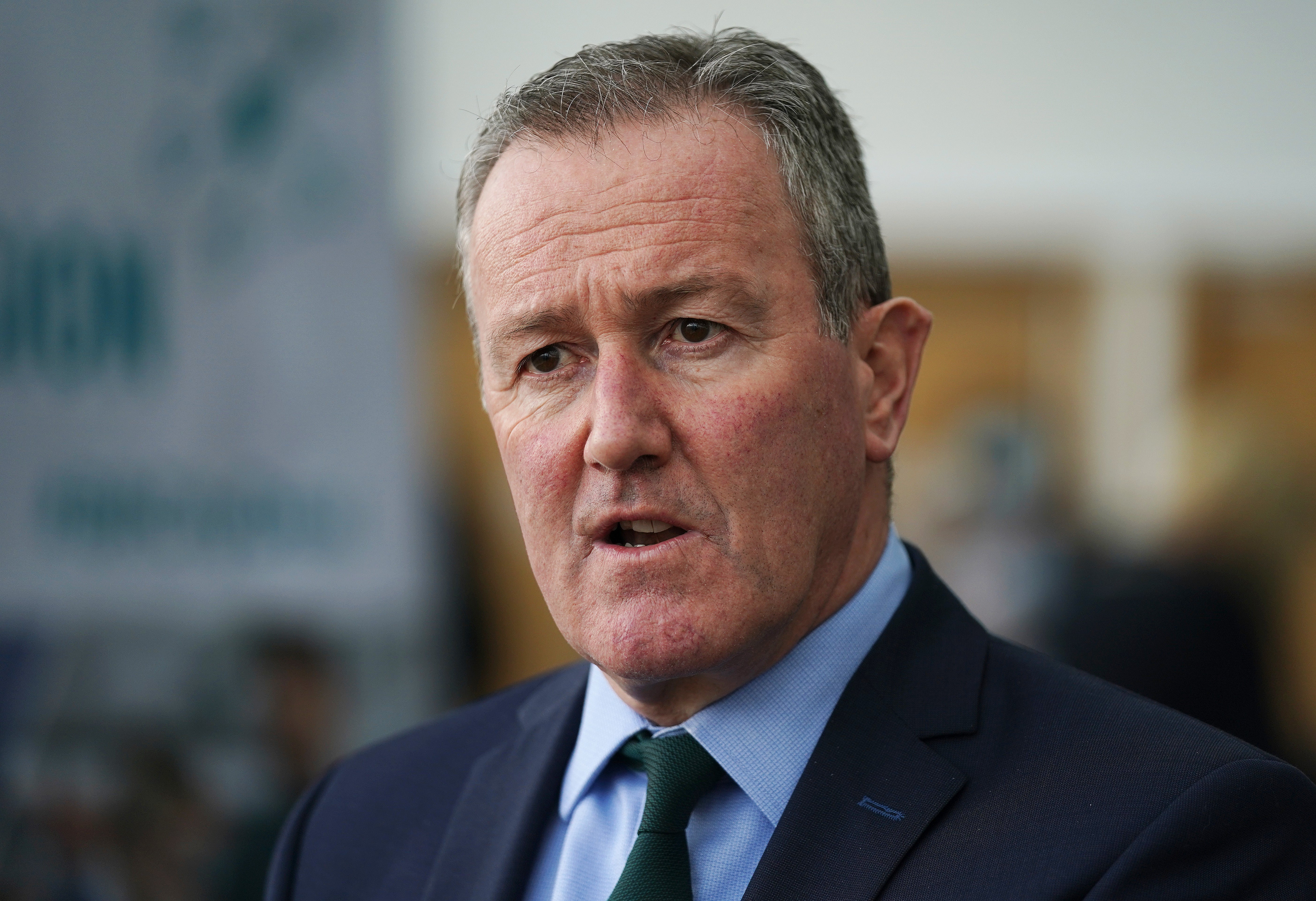
Stormont’s draft budget for the next three years is lacking in its strategic approach, a fiscal watchdog has warned.
The Northern Ireland Fiscal Council said, while the figures in the proposed spending plan add up, there was not enough detail to explain the planned reallocation of departmental resources to prioritise health spending.
The independent body was set up last year bring increased transparency and scrutiny of the region’s public finances.
One of its main roles is to examine the Executive’s budgets.

The draft budget sent out for public consultation in December proposes a 10% increase in health spending in Northern Ireland, with £21 billion earmarked for services over the next three years.
The spending plan, if ultimately approved, will leave other departments facing some tough choices as a result of the 10% cash increase for the health budget.
While none of the other departments would see a reduction in their baseline allocation from the last budget, they will be 2% down on what they would have expected to receive if extra funding were not being diverted to health.
The draft budget tabled by Sinn Fein Finance Minister Conor Murphy has not yet been endorsed by other Executive ministers.
The DUP voted against the plan in December, claiming it lacked detail.
While the SDLP, UUP and Alliance support the budget’s top-line aim, to prioritise health spending, they have not yet backed the detailed department spending allocations contained in the plans.
However, those three parties agreed with Sinn Fein to send the plans out for the public consultation exercise, which is ongoing.
In its first annual budget assessment, the council called on the Executive to redouble efforts to agree a “reforming” budget before the Assembly dissolves in March ahead of the election.

Chairman of the Fiscal Council, Sir Robert Chote said the plan lacked evidence of strategic priority-setting beyond health as well as concrete proposals for consultation in areas like efficiencies, charging and the halting of unnecessary services.
“Presented with a bigger block grant settlement than most people expected, the Finance Minister’s big judgments were to increase capital borrowing, freeze regional rates and increase departmental spending, especially in health,” he said.
“Most of this is uncontroversial, but the devil has been in the departmental detail.
“Leaving aside money earmarked for particular purposes, the Finance Minister started by asking most departments to take a 2% cut to provide extra money for health,” Sir Robert added.
“This sounds even-handed, but the proposed distribution of the increased Block Grant creates relative winners and losers among the departments and there is little explanation of the choices made.
“For most departments, this extra money more than compensates for the 2% cut.
“In terms of ensuring a strategic approach, it is also regrettable that the Executive could not publish its draft Investment Strategy in time to inform the capital spending proposals.
“Looking beyond the election, it is also essential that the incoming Executive establishes a close link between its budget allocations and the Programme for Government that it will be required by legislation to agree.”
Sir Robert identified several risks to any budget plans agreed by the Executive.
These included pressures for uplift in public sector pay due to inflation and uncertainty over funding outside of the Executive’s control, such as the UK Government replacement of EU funding.
On the council’s goal of increasing transparency of public finances, Sir Robert said: “There have been some useful advances in this draft Budget, but there is plenty of scope to do more in the final Budget.
“For example, accompanying the spending proposals with an up-to-date forecast for spending in the current year and comparable figures for past years.”







